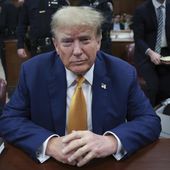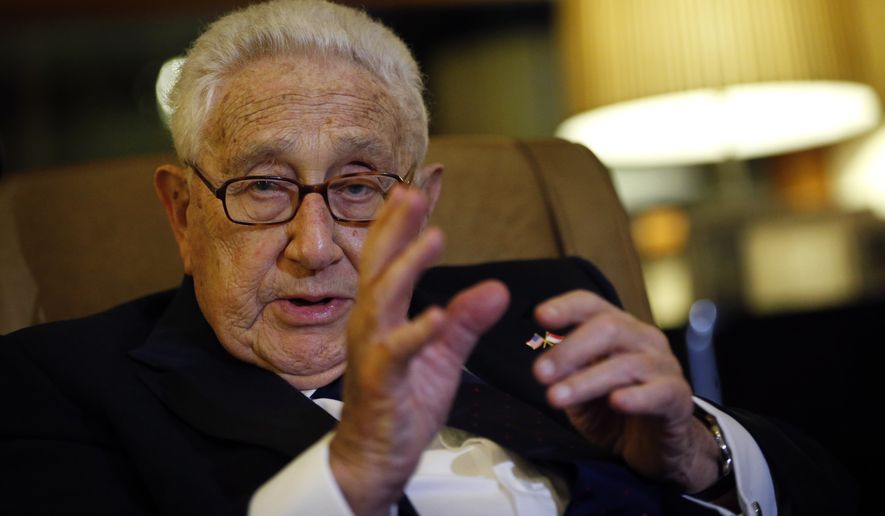Depending on your level of suspicion, the Bilderberg Group is either a secretive group of powerful elites bent on global domination or a secretive group of powerful elites with big ideas and bigger heads.
Cunning powerbrokers or vain blowhards, the members of the Bilderberg Group arrived at a resort in the Austrian Alps Thursday for the start of their annual three-day meeting amid heavy security, protesters, conspiracy theories and a news blackout.
Among the reported attendees are former Secretary of State Henry Kissinger; Thomas Donilon, former White House national security adviser under President Obama; former Obama campaign manager Jim Messina; former CIA Director David Petraeus; Mary Erdoes, CEO of J.P. Morgan Asset Management; Princess Beatrix of the Netherlands; Goldman Sachs executive Robert Zoellick; Jose Barroso, former president of the European Union Commission and executives of companies ranging from Google to Shell.
The group forbids press coverage of its meetings and doesn’t record its closed-door discussions. Bilderberg did post its agenda on the group’s website, and this year’s topics of discussion are: “Artificial intelligence, cybersecurity, chemical weapons threats, current economic issues, European strategy, globalization, Greece, Iran, Middle East, NATO, Russia, terrorism, United Kingdom, U.S.A., U.S. elections.”
To critics, the Bilderberg players and their agenda are evidence of an effort to impose a sinister world order. But some analysts say such a broad agenda being debated by 130 outsize egos over cocktails and canapes leaves little time to plot actual worldwide supremacy.
“When you throw in the 15 topics and then the obligation for everybody to have their 20 seconds of profound thought, you wind up getting pretty much of a gabfest with nothing much done,” said Gary Schmitt, a top security analyst at the American Enterprise Institute and former foreign intelligence adviser under President Reagan. “They enjoy being thought of as being ‘elite.’ But nothing comes out of it.”
Although the group cloaks itself in secrecy, it does have a spokesman who, not surprisingly, asked not to be named. He said Bilderberg operates in private to foster meaningful debate on the big issues of the day.
“While we understand and generally welcome the general interest in the conference, we simply cannot provide the levels of access or transparency that certain individuals or groups would like to see,” the spokesman said in an email. “To encourage the highest level of openness and dialogue among the participants, and to keep the private character of the meetings, all participants respect the Chatham House Rule.”
An English invention dating to 1927, the Chatham House Rule essentially forbids participants from revealing the identity of people making comments. The idea, according to adherents, is to promote free debate without fear of repercussion.
Some observers say it’s no coincidence that Bilderberg members are assembling to talk about globalization and the world economy just as the U.S. House is holding votes on granting Mr. Obama trade-promotion authority to speed negotiations on massive free trade agreements with Pacific Rim nations and with Europe.
Asked what the Bilderberg Group hopes to accomplish this year, the spokesman described a goal that could be characterized as little more than upscale schmoozing.
“There is no desired outcome, no minutes are taken, and no report is written,” he said. “Furthermore, no resolutions are proposed, no votes are taken, and no policy statements are issued. The conference serves one main goal: to foster discussions on predefined topics. Bilderberg is about gaining insights, fostering understanding and facilitating exchanges of views about the major issues facing the world. With this in mind, the main aim is to broaden the participants’ range of viewpoints, to gain insights and exchange views.”
Bilderberg takes its name from the hotel in the Netherlands where the group first met in 1954 (the hotel still exists). The group has been accused of controlling the Republican Party furtively, of being founded by a Nazi (the founder, German-born Prince Bernhard of the Netherlands, was a Nazi party member until 1934) and of trying to impose a one-world government.
The group says on its website that it was founded “to foster dialogue between Europe and North America.”
“The pioneering meeting grew out of the concern expressed by leading citizens on both sides of the Atlantic that western Europe and North America were not working together as closely as they should on issues of common interest,” the statement said.
Mr. Schmitt said Bilderberg’s influence, whatever it was, has been eclipsed by a variety of other international summits in which the participants are more accountable to their constituents, and the agendas and discussions are more transparent.
“It’s had no impact in years and years, if it ever had much of any,” he said of Bilderberg. “When it first started, it was a bit unique. But over the years, you’ve had any other number of confabs, like the Munich Security Conference or the Brussels Forum, or Davos [Switzerland] and Shanghai. The agenda now is full of very senior-level get-togethers. “You only have to go to one or two of these to realize the only reason you’re there is to enjoy a beer or two.”
• Dave Boyer can be reached at dboyer@washingtontimes.com.




Please read our comment policy before commenting.